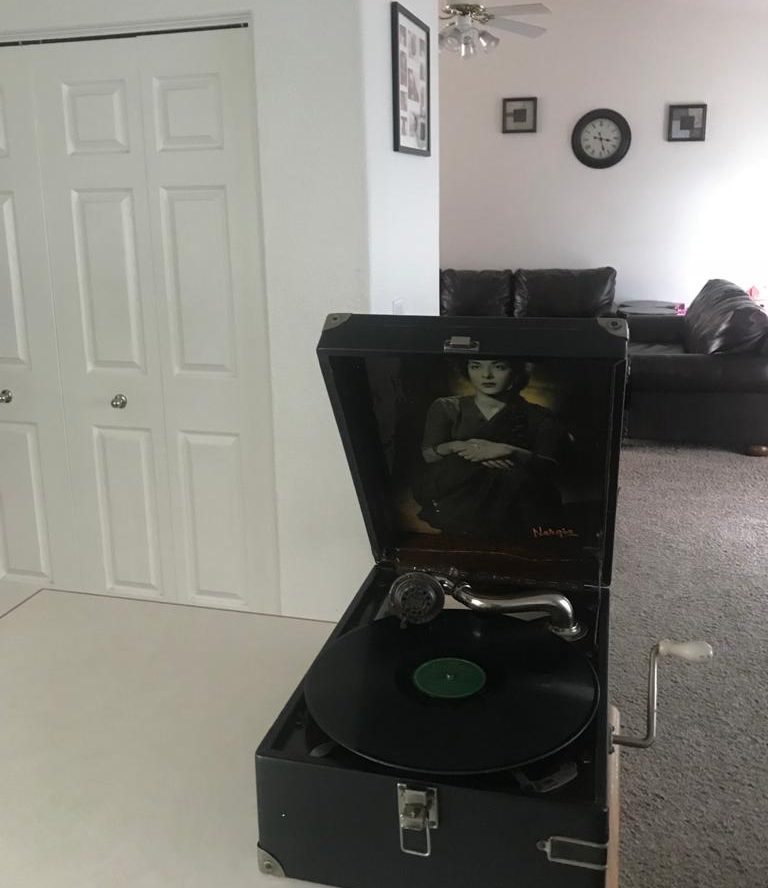
Prakash also possesses another family treasure, some utensils his grandparents used in Bhiria. While leaving the ancestral abode, they didn’t take any precious things but the utensils, the gramophone and some records of popular songs of that time.
He took all these antiques while moving from India to USA some eight years back.
Nasir Aijaz
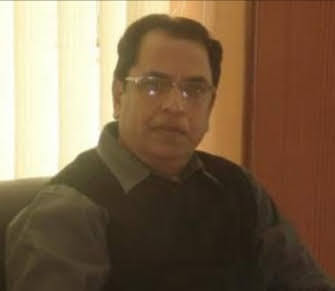
Prakash Khilnani is settled in the USA and was scheduled to leave for India after about four years to meet relatives and old friends. We have never met, but a bond or I must say bonds do exist that brought us closer, erasing all the barriers of artificial frontiers created at the time of partition of subcontinent in 1947. One bond, in the words of my Italian poet friend Stefania Miola, is that ‘we all humans live under one sky’, and the other one, much more stronger, is that Prakash is Sindhi and descendent of a family that lived before so-called 1947 partition, in Bhiria – my hometown in Naushehro Feroze district of Sindh, known as Sahiti Pargana.
Although, Prakash Khilnani was born after the partition in India and has never visited his ancestral hometown, he had longed for it since childhood after listening to the stories of Bhiria from his father who was in a private job in India when the partition was announced. And, since he had been unable to visit his ancestors’ motherland, the only thing he has to satisfy nostalgic feelings is a ‘treasure’ brought by his grandparents, which he has preserved for all these decades. The ‘treasure’ includes a gramophone and some utensils.
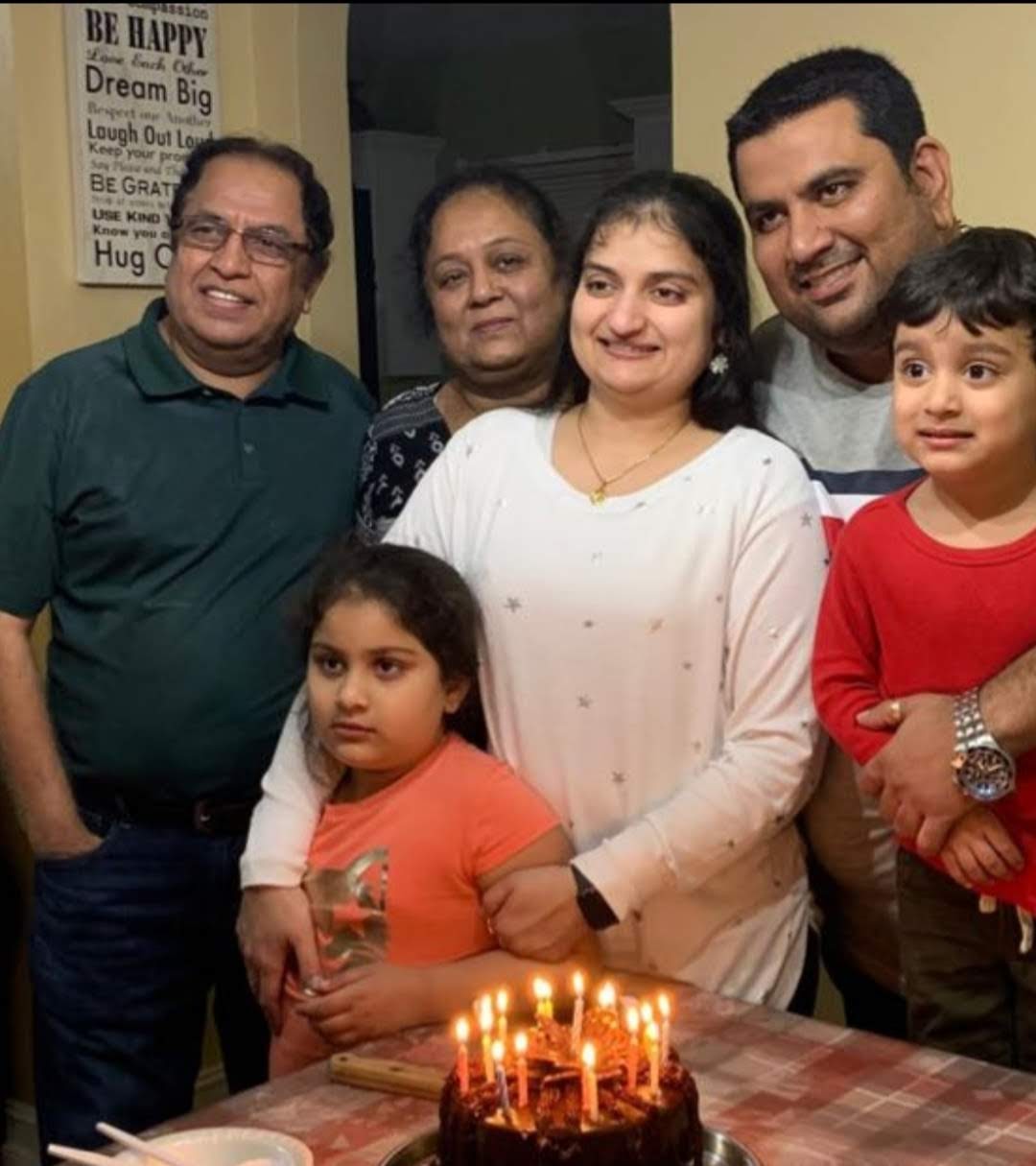
“My father and uncle, both were in a private job in India when the partition took place. My grandparents and a few other family members were there in Bhiria, who migrated taking some things – and those include a few utensils made of brass and a gramophone,” Prakash told.
“I was born in 1955 and didn’t see my grandfather who passed away in 1954, but my father used to share memoirs of ancestors and homeland. I grew up listening to those memoirs that always reminded me of our roots”, he proudly says.
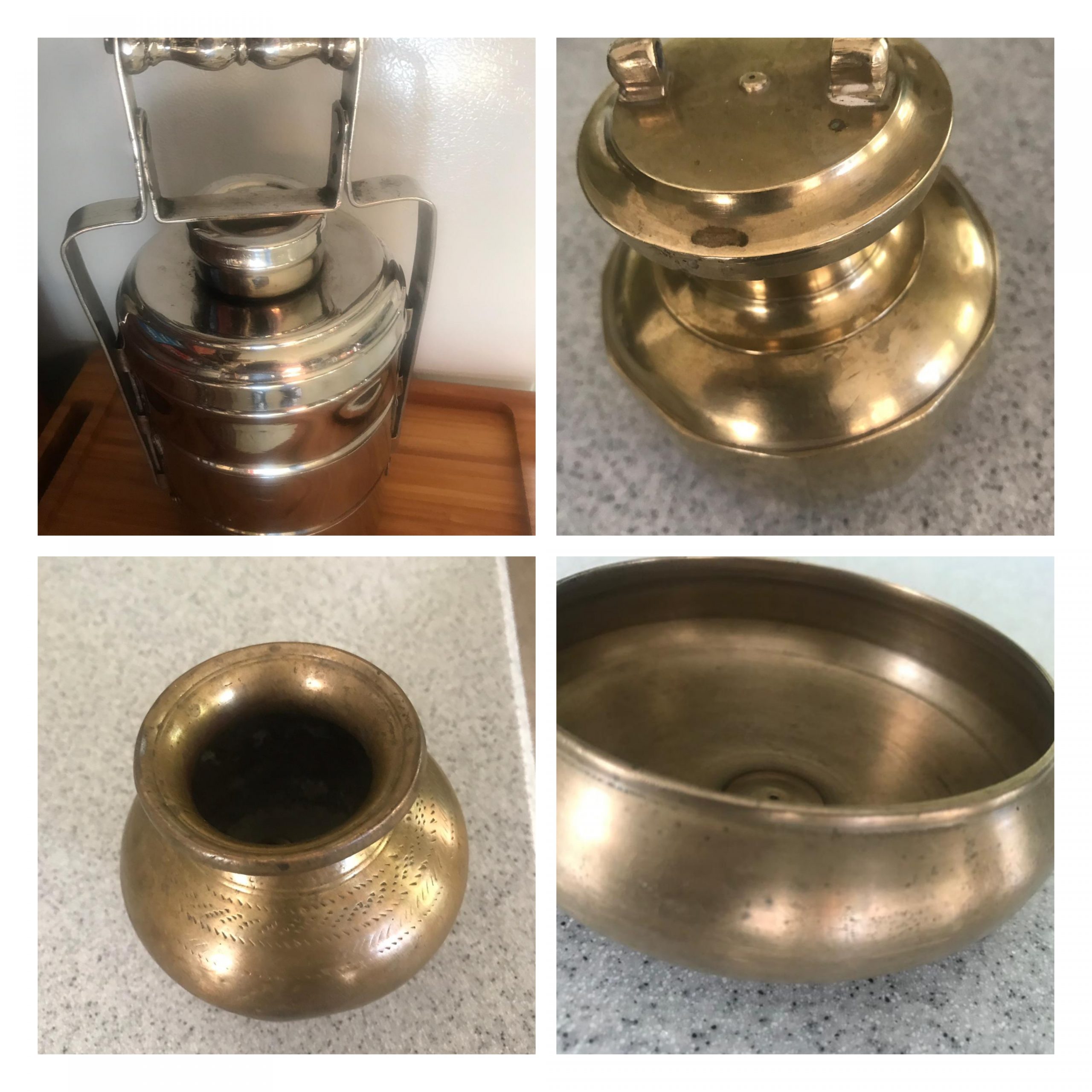 “All these things, which I have preserved, are sacred for us,” Prakash said and added, “On the occasion of Diyari (Diwali) and other religious festivals, we put all the utensils in front of us for rituals.”
“All these things, which I have preserved, are sacred for us,” Prakash said and added, “On the occasion of Diyari (Diwali) and other religious festivals, we put all the utensils in front of us for rituals.”
Sharing further, Prakash said his father used to tell him that their family was the first one to buy the gramophone in Bhiria in 1920. “We had dozens of gramophone records which included some rare songs of Sindhi singers of that time but unfortunately, most of them couldn’t be preserved.”
“Ours was the first family to have a gramophone in Bhiria,” he said.
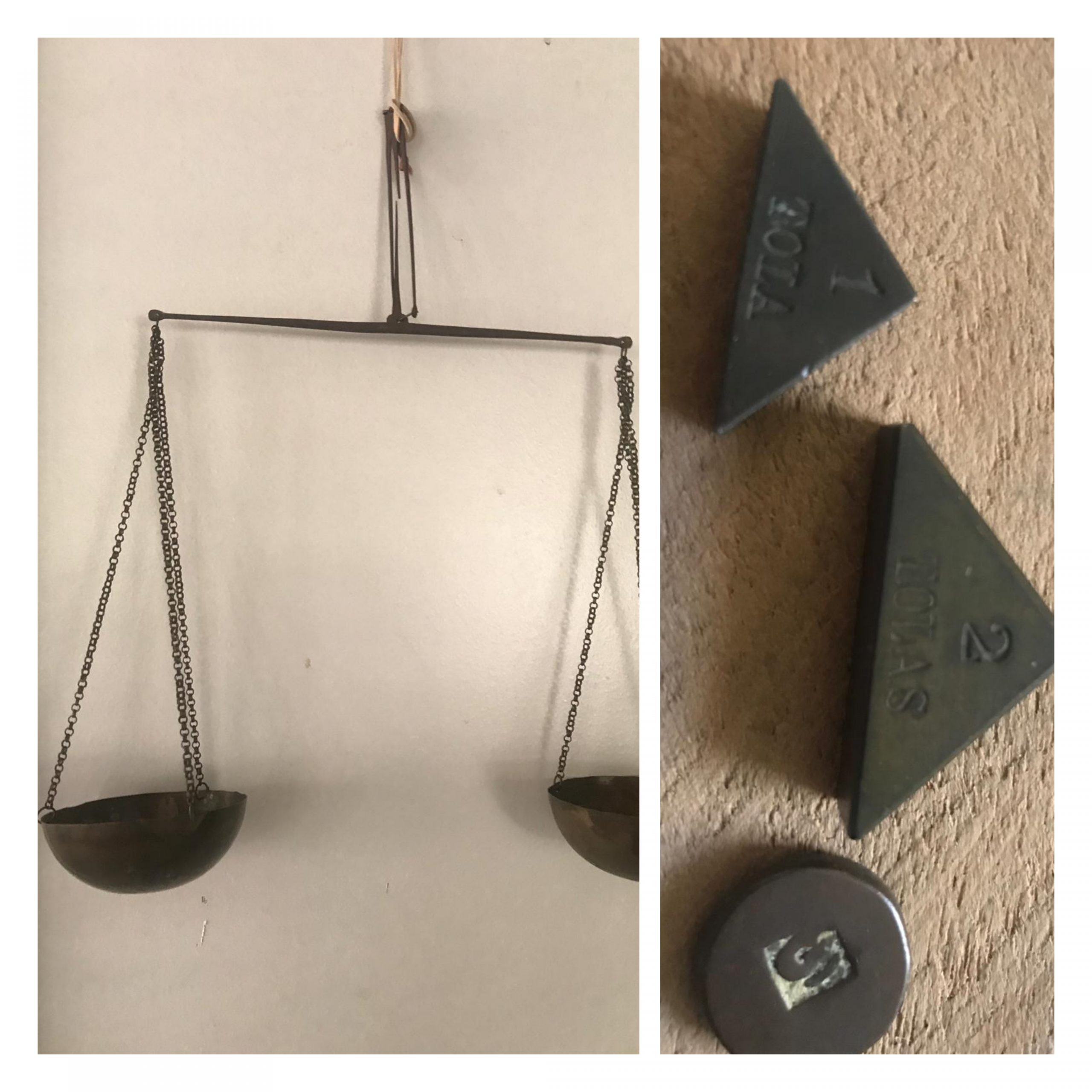 Prakash Khilnani said that besides gramophone and utensils, he also has some weights and measures, and a pair of scales or Tarazi/Sahmi, as called in Sindhi language. “It is made of pure silver and is kept in a wooden box.”
Prakash Khilnani said that besides gramophone and utensils, he also has some weights and measures, and a pair of scales or Tarazi/Sahmi, as called in Sindhi language. “It is made of pure silver and is kept in a wooden box.”
My parents had settled in Vadodara (Baroda) city of Gujarat in India after the partition. “All these antiques were there at our home, but I took all these things along when I moved to America,” he told.
Prakash Khilnani, who shared the photos of his parents as well as of gramophone and utensils, said that the names of his grandparents are engraved on the utensils. The utensils have been maintained in a way they look as if purchased recently.
“One of these bowls belongs to my father’s uncle Motiram Aaildas Khilnani. On this bowl, his name Motiram is written in Hindi.”
“Motiram was real uncle of my father Sadhuram,” he said and added, “The bowl is made of ‘Kut’, as called in Sindhi language, and is some 85 years old.”
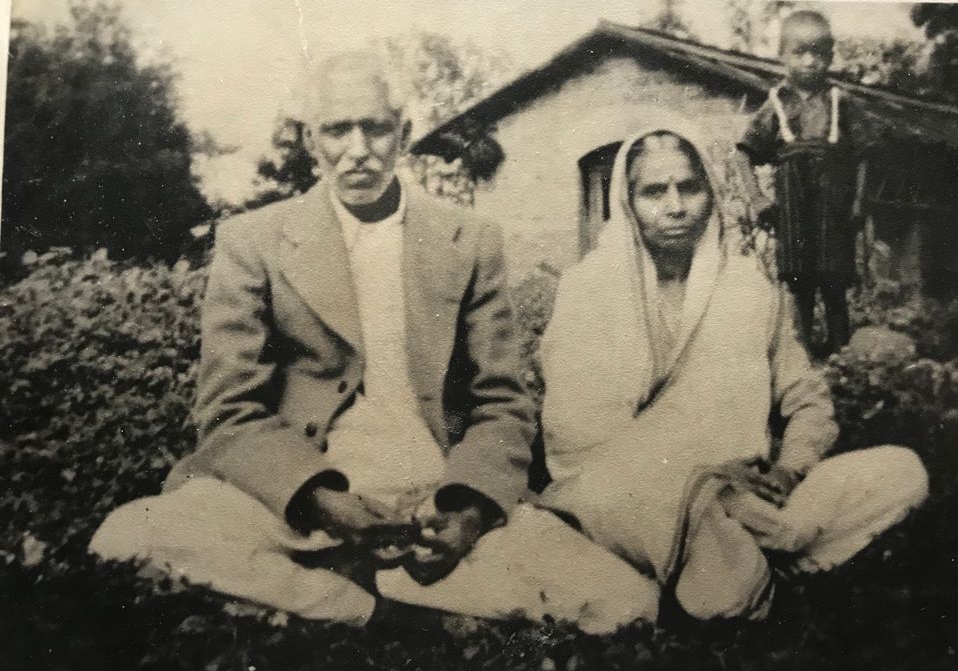
“The tiffin belongs to my gransfather Atmaram Aildas Khilnani. It’s made of pittal (brass) and may be more than 100 years old. We changed it in steel color in 2003 spending a few hundred rupees,” he said. “The other thing my grandfather left is a lotto (ewer or vase-shaped jug), also as old as the tiffin.”
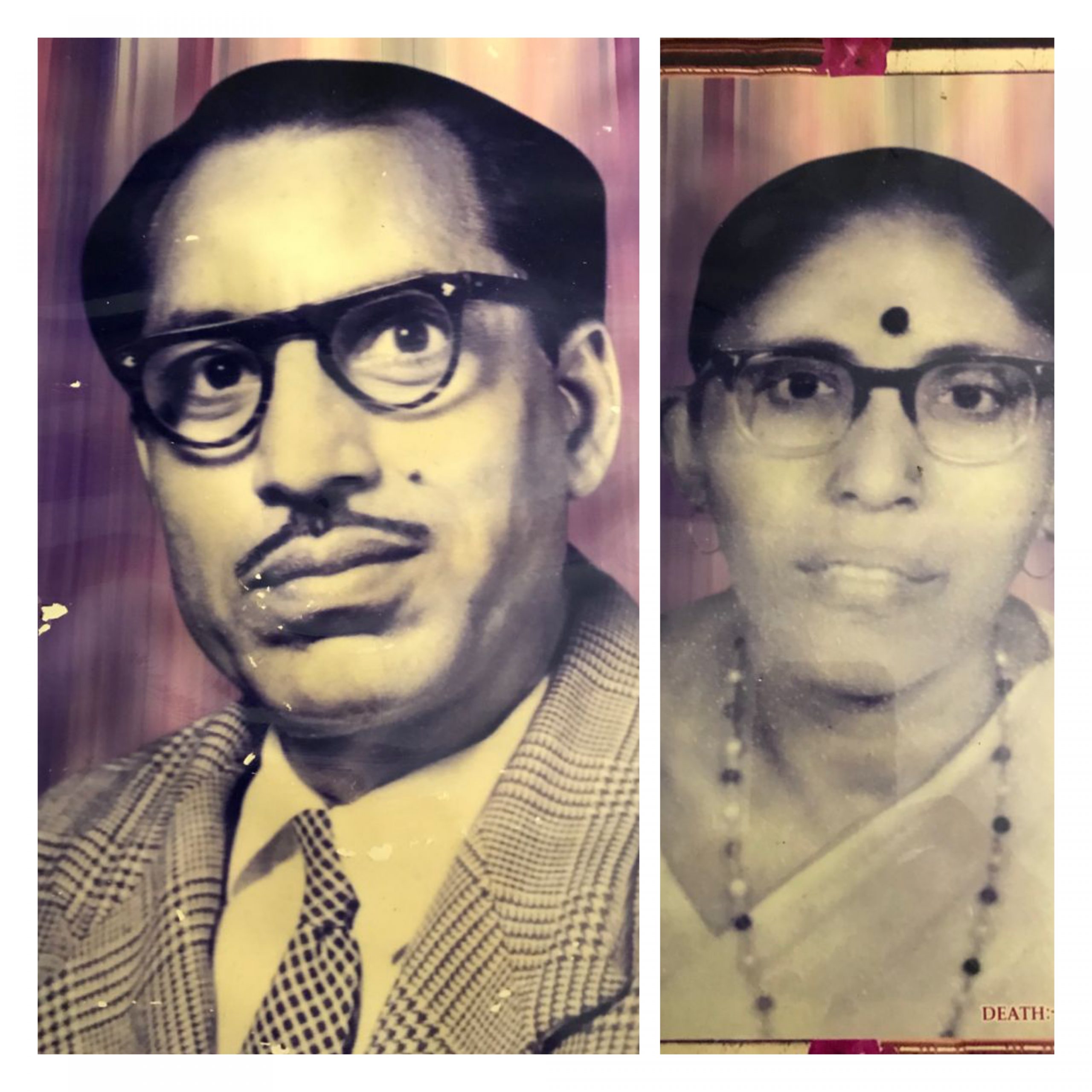
Another over 100 years old utensil made of German silver belonged to his grandmother Smt. Jasoda Atmaram Khilnani and her name is also engraved on it. “It’s made of pure silver.”
“As I told before, my grandparents also had Tarazi/Sahmi. It was kept in a triangular wooden box along with weights of half tola, one tola and two tola, and must be 85 years old,” Prakash said.
Another antique, which Prakash proudly mentioned is the gramophone, which his grandfather had purchased in 1920. “I have kept it functional even today and used to play and listen to old songs, which take me back to my ancestors’ era and our motherland. They include old Sindhi and Hindi songs.”
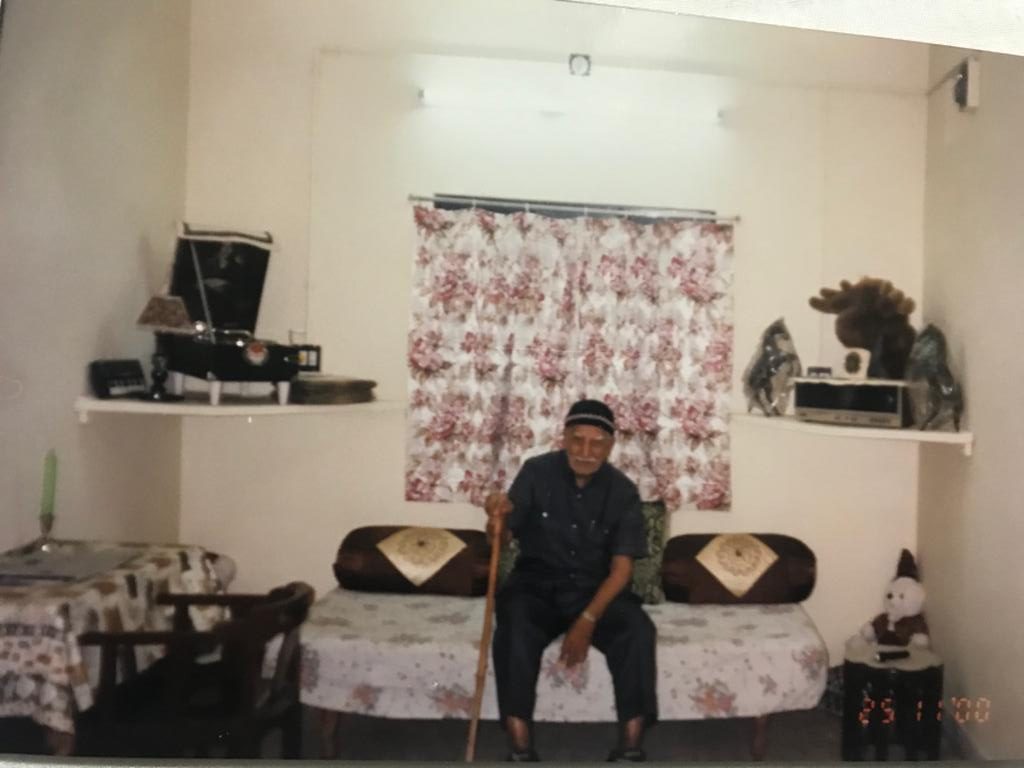
Prakash Khilnani also shared details of his ancestors according to which his father Sadhuram had two brothers – Motiram and Choithram, and two sisters Padma and Hari. “My grandfather Atmaram was son of Aildas, whose father was Ghanshyamdas.” They all belonged to legendary Khilnani family of Bhiria, Sindh known for their philanthropy, and services in education and social welfare fields. Rai Bahadur Dewan Kauromal Chandanmal Khilnani can be named one of those legends, who is revered most as ‘Father of Sindhi Literature’, great Social Reformer and Educationist.
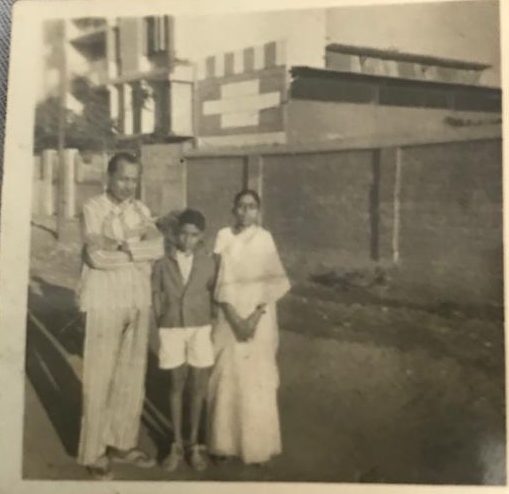
“We always feel proud of having kinship with Rai Bahadur Dewan Kauromal Chandanmal Khilnani,” Prakash often said.
Prakash had been sharing lots of memories over the phone during last three to four years, which I will pen down on some other occasion.
Prakash, who turned 67 on November 6, 2022, told me on December 8 that he has booked ticket for 28th December to visit India. “I will be there for a couple of months. First, I will go to Baroda, my home, and then to other cities including Amritsar for Puja.”
I pray for his safe journey, health, happiness and long life.
_________________
Nasir Aijaz is a senior journalist and Chief Editor, Sindh Courier, based in Karachi. He is author of nine books on literature, language and history. He can be accessed at nasir.akhund1954@gmail.com